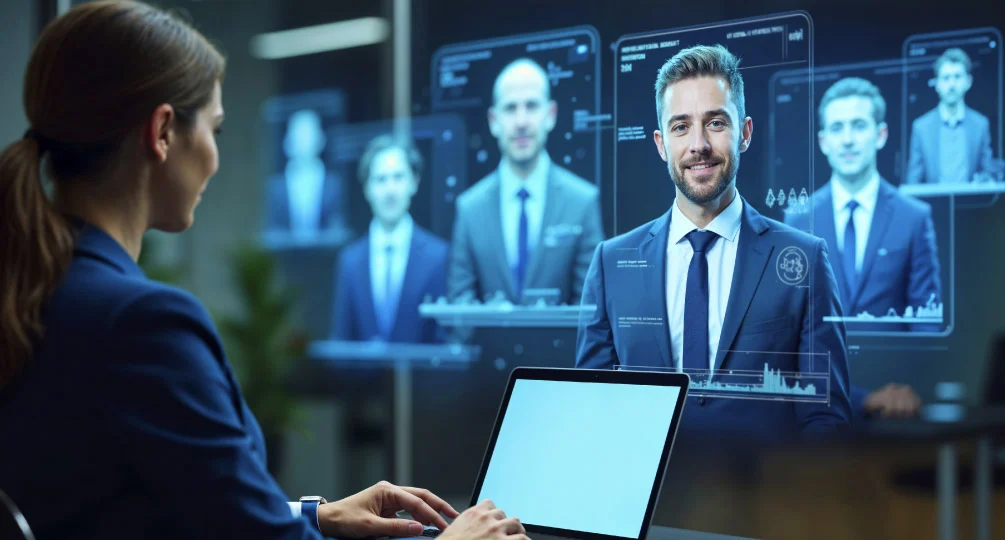The workplace has changed for the better. In the last few years, we have seen the evolution of Artificial Intelligence from a trendy concept to a pivotal component of business. In HR, AI is transforming not only the ways in which work is accomplished, but also how we relate, assist, and develop with our teams.
With 2025 looming on the horizon, HR has evolved past mere automation of tasks. AI is now adopting a holistic approach toward the entire roadmap of the employee life cycle.
Let us explore some of the top HR automation trends and their implications for the HR technology landscape.
- The Employee Experience Becomes More AI-Specific and Customized
We have all encountered onboarding, training sessions, and communications from HR that are automated and rote. This is no longer the case. The future of HR technology will streamline processes to ensure personalization becomes the standard.
AI will assist in customizing learning pathways, wellness check-ins, and even the career growth plans for every employee based on their goals and previous activities. Such an approach will engender deeper engagement and satisfaction while reducing quiet quitting. Teams will also have the capabilities to monitor predictive HR metrics to identify early signs of burnout, disengagement, or low retention and intervene in a timely manner.
- AI-First Hiring Is Now Permanent
Recruitment is often dull, systematic, and loaded with bias. AI in HR 2025 projects that recruitment technologies will have AI embedded into them.
Picture this. AI sorts through thousands of resumes, identifying and ranking candidates. It analyzes video interviews for emotional and nonverbal communication. AI tools for recruitment are efficient, unbiased, and utterly intelligent.
However, trust is a fundamental component. As more AI technologies are incorporated in decision-making processes, companies will need to explain the inner workings to build trust with prospective hires.
- Outdated Performance Reviews Get an Upgrade
Annual reviews have a strange mix of ‘awkward’ and ‘not timely.’ AI-driven performance management systems are game changers.
AI eliminates yearly assessments by providing continuous insights into employee performance. Employees will be more engaged and motivated as their milestones are monitored, challenges are flagged, and appreciation is dispensed in a timely way.
The outcome remains the same, however, the agility, support, and growth mindset culture is driven by the team, not just management.
- Introducing Your New AI-Powered HR Assistant
For those who have emailed HR multiple times just to find out how many vacation days are available, this will be comforting. By 2025, employees will be able to utilize smart chatbots and virtual assistants for vacation booking and benefits inquiries. These types of technology will be able to provide help answering questions and learning more with every interaction, thus improving efficiency. HR departments will now be able to focus on strategic matters instead of paperwork, while employees will now be able to access information easily.
- Data-Driven HR, with a Human Touch
With AI, HR departments will be able to make more predictive analytics-based decisions in 2025, allowing for a data-savvy approach to HR. AI can streamline processes such as anticipating hiring needs, enhancing employee engagement through collaborative AI tools, and analyzing team dynamics helping HR make real-time data-driven decisions.
Every HR teams’ goal is to better understand and to support its employees, and with AI-based predictive analytics in HR, this can now be achieved. This new technology will certainly aid in being data driven and supportive of employees at the same time.
- Digital Transformation Cannot Be Compromised
The use of disconnected systems, like emails, spreadsheets, and siloed software, is coming to an end. An HR digital transformation means creating ecosystems powered by AI where data is interconnected and flows seamlessly throughout every stage of the employee life cycle.
By 2025, we will see the widespread adoption of comprehensive multifunctional systems that integrate recruitment, payroll, employee performance, learning, and wellbeing—all powered by AI.
What drives this change? Employees expect ready access to smooth tech-enabled interactions and streamlined services during work hours, the same way they enjoy outside the workplace.
Preparing HR Departments for an AI-Enabled Workplace
AI will not replace HR teams; instead, it serves to strengthen office processes. HR professionals need to rethink their strategies if they want to maximize the potential of these systems and technologies.
Here are the key focus areas for HR departments in 2025:
- Develop an organization-wide AI literacy strategy, along with team-specific skill-building initiatives.
- Work with other employees from different organizational functions, particularly the IT and data teams.
- Prioritize ethical practices and remain accountable, especially if AI technologies determine outcomes involving individuals.
- Innovate while testing continuously—AI adoption is an evolving journey, not a one-off project.
Final Thoughts
AI in HR is maturing and bringing significant transformation with it. Everything from AI recruitment assistants to employee experience automation software and automation trends in human resources that seemed like science fiction just a few years ago are now a reality in the workplace.
However, one thing remains constant: human beings. The best HR technology does not eliminate the need for human interaction; it enhances it. The future of HR technology is certainly intelligent, but it is also empathetic, attentive, and profoundly human.

